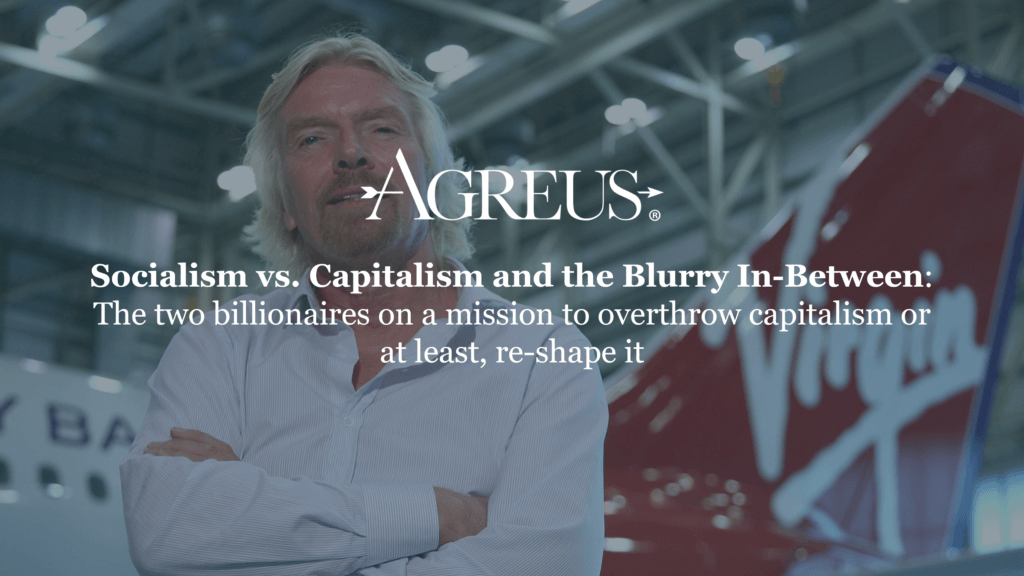In an age where the dichotomy between socialism and capitalism seems stark, one must ponder an intriguing question: Can the principles of these seemingly opposing ideological frameworks be synthesized to create a balanced society? The Bahá’í teachings provide a profound exploration of social, economic, and spiritual principles that encourage individuals to consider not only the merits of each system but also the transformative potential of an integrative approach.
To navigate this discourse effectively, it is essential to elucidate the fundamental tenets of both socialism and capitalism. Socialism, in its various iterations, advocates for collective ownership and egalitarian distribution of resources. It emphasizes social welfare, ensuring that all individuals receive equitable access to basic needs such as healthcare, education, and housing. Conversely, capitalism champions individual initiative and market-driven economies, where entrepreneurial endeavors drive innovation and economic growth. This system often promotes the idea that competition leads to enhancements in quality and efficiency.
However, the stark realities of both systems pose significant challenges. Socialism may face criticisms regarding inefficiencies and constraints on individual freedoms, potentially curtailing personal ambition and enterprise. On the other hand, capitalism can engender vast inequalities and create systemic barriers for those unable to compete in a marketplace defined by profit maximization and aggressive competition. Such disparities raise ethical questions about human dignity and the collective responsibility to safeguard marginalized populations.
Herein lies the essence of the Bahá’í perspective: the recognition that the full potential of humanity can only be realized when the best elements of both socialism and capitalism are harmoniously integrated. The Bahá’í teachings advocate for a moral framework that transcends mere economic mechanics, calling for the cultivation of virtues such as justice, equity, and compassion. But how does this synthesis manifest in practical applications?
One of the guiding principles of the Bahá’í Faith is the pursuit of unity. This concept is not merely abstract; it serves as a cornerstone for social systems. True unity involves recognizing the interconnectedness of humanity and the imperative to work collaboratively for the common good. Encouraging partnerships between private and public sectors can lead to innovative solutions that enhance economic stability while promoting social welfare.
Moreover, the Bahá’í teachings assert that wealth and resources should be viewed as trusts from God, to be stewarded with a sense of accountability and transparency. Such a perspective invites societal structures that promote shared prosperity. In this frame, wealth generation is not an end in itself, but a means to uplift the whole community. Social enterprises—businesses that generate profits while pursuing a social mission—embody this philosophy. By intertwining the profit motive with a commitment to social responsibility, these models illustrate how capitalism can be informed by a socialist ethos.
Yet, the integration of these systems is not without complexity. Balancing the individual freedoms inherent in capitalism with the collective needs emphasized in socialism necessitates wisdom and foresight. It poses a perennial challenge: How does one nurture individual ambition without allowing it to devolve into unbridled materialism? The Bahá’í teachings suggest that fostering a culture of service, where success is measured not only by personal achievement but by contributions to society, can mitigate potential pitfalls. Encouraging businesses to adopt ethical practices aligns economic success with a commitment to the enrichment of community welfare.
Another critical aspect of the Bahá’í discourse is the emphasis on education and the development of human capital. A well-educated populace is better equipped to navigate the complexities of a blended economic system. Education serves as both a liberating force and a stabilizing mechanism, providing individuals with the tools necessary to engage in meaningful dialogue about socio-economic issues. By nurturing critical thinking, creativity, and ethical reasoning, societies can cultivate a generation primed to innovate solutions that resonate with both moral imperatives and economic realities.
Moreover, the Bahá’í principle of consultation—an approach that fosters participatory decision-making—can facilitate a collaborative economy where diverse perspectives converge to create solutions that reflect the collective will. This process not only empowers individuals but also upholds the dignity of every person involved. Thus, through effective consultation, communities can navigate the delicate balance between individual aspirations and collective responsibilities.
As we venture further into the complexities of contemporary socio-political landscapes, it becomes abundantly clear that neither socialism nor capitalism alone can yield a just and prosperous society. Instead, the vexing question remains: how do we embrace the strengths of both systems while addressing their inherent limitations? The Bahá’í teachings invite us to consider this synthesis not merely as an ideal but as a necessary evolution in our socio-economic paradigms.
Ultimately, the challenge lies in redefining success—transforming the financial imperative into a collective aspiration that prioritizes human dignity and equity. As we reflect upon the potential of an integrative approach, it becomes evident that the path toward a more harmonious society entails not just economic transformation, but also a profound shift in values. Through the lens of Bahá’í principles, we are called to explore uncharted territories, where the best of socialism and capitalism coalesce to foster a more equitable and compassionate world.
